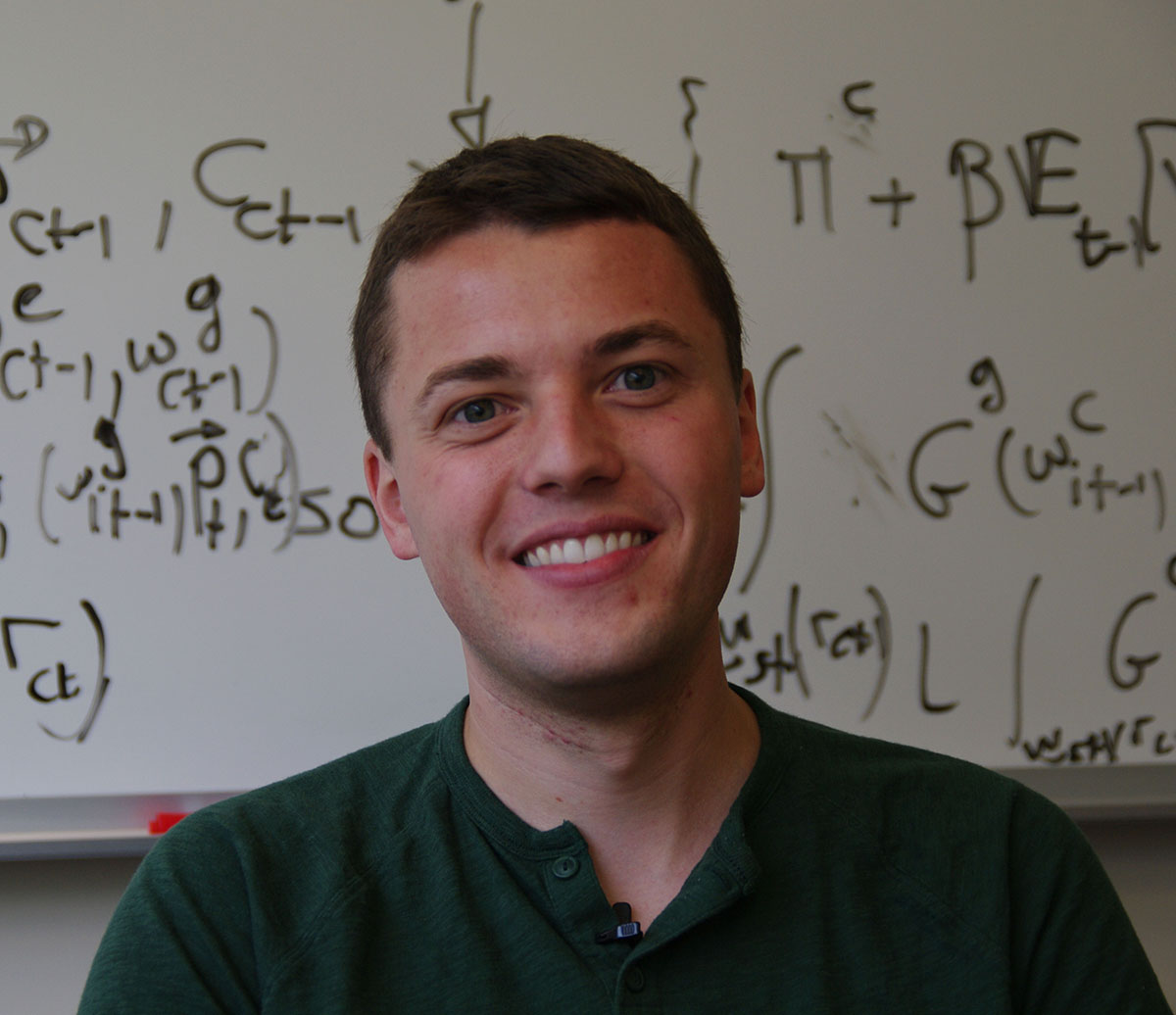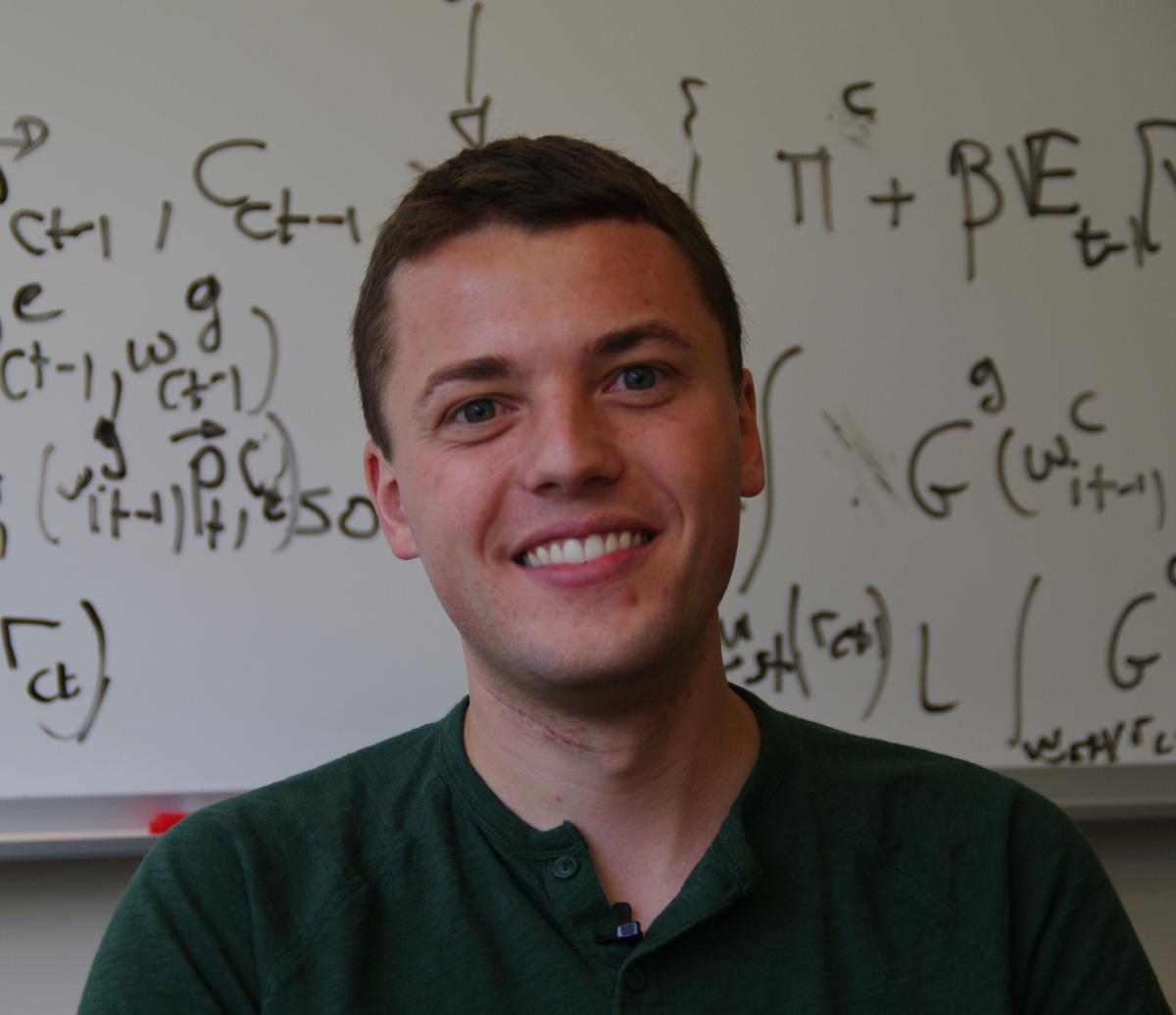
 Growing up in Independence, Missouri, Michael McClellan experienced many hot and humid summer days. As a kid, he used to take a can of bug spray and twirl it around, spray it in a great ribbon, and see it catch the light.
Growing up in Independence, Missouri, Michael McClellan experienced many hot and humid summer days. As a kid, he used to take a can of bug spray and twirl it around, spray it in a great ribbon, and see it catch the light.
“Now, as a chemist, I can look back on that and say ‘wow,’ I was putting a lot of stuff into the atmosphere—I really shouldn’t have,” says McClellan, a new PhD student with Ronald Prinn, co-director for the Joint Program and the TEPCO Professor of Atmospheric Science. “Those experiences as a kid led to my interest in studying indoor consumer products and their effects on the atmosphere.”
As an undergrad at Carleton College, McClellan became a chemistry major. For an environmental analysis class, he developed a hypothetical research project where he would investigate the effects of indoor air fresheners. This class project ultimately turned into a two-year research project that allowed McClellan to further expand his knowledge of the impacts of aerosols on human health and the environment.
“I really enjoy doing applied research that can have an impact on people’s daily lives,” says McClellan.
Now, as a doctoral student, he plans to continue researching problems that affect human health by working with the Advanced Global Atmospheric Gases Experiment (AGAGE) Network, led by Prinn.
McClellan will have the opportunity to visit some of the AGAGE stations to better understand the different components of the atmosphere and then use the high-resolution data in models to understand how air is travelling, where pollution comes from, and who will be affected.
“I want to do my best to tease out the different mysteries of the Earth’s atmosphere and add more details to the larger picture of climate change, human health and the way that the air travels around the globe,” explains McClellan “I think that just by learning more fundamentally about the air that everyone breathes we can begin to have some really practical applications for policy decisions.”
McClellan was drawn to MIT, the Joint Program, and Prinn’s research group in the Earth, Atmospheric and Planetary Sciences (EAPS) Department because of the broad group of researchers and the opportunity to study a wide range of topics—meteorology, chemistry, policy and human health—all together.
“I am just completely overjoyed that I can bring together all of these fundamental interests I’ve had for a long time,” says McClellan.

